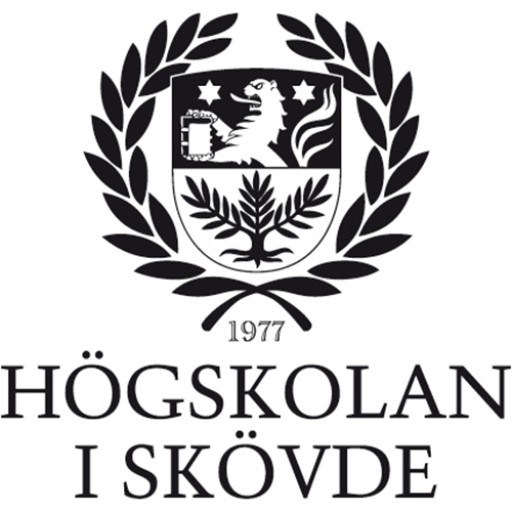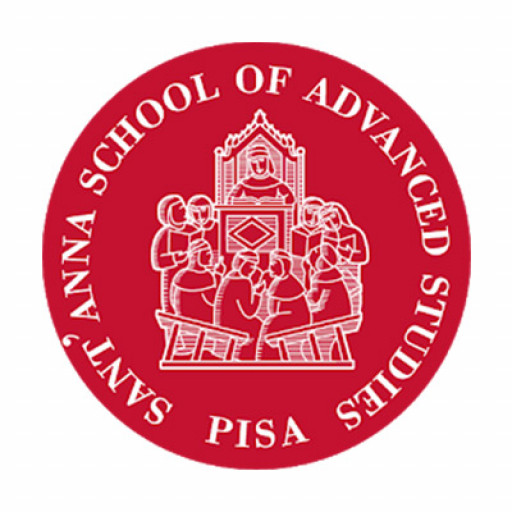Photos of university / #uniofskovde
The Master's Programme in Molecular Biotechnology at the University of Skövde is a comprehensive advanced degree designed to equip students with in-depth knowledge and practical skills in the rapidly evolving field of molecular biology and biotechnology. This programme aims to prepare graduates for diverse careers within research, development, and industry sectors focused on biotechnology applications, including pharmaceuticals, agriculture, and environmental management. Throughout the programme, students explore fundamental principles of molecular biology, genetics, and biochemistry, alongside state-of-the-art techniques such as gene editing, recombinant DNA technology, bioinformatics, and systems biology. The curriculum is structured to foster both theoretical understanding and hands-on laboratory competencies, enabling students to design and conduct experiments, analyze complex biological data, and solve real-world problems. Emphasis is placed on innovation, ethical considerations, and sustainable practices in biotechnology.
Students have access to modern laboratories equipped with advanced instrumentation, allowing for experiential learning and research projects. The programme encourages collaboration with industry partners and research institutions, providing opportunities for internships and practical training that enhance employability upon graduation. The Master's programme also emphasizes critical thinking, scientific communication, and project management skills necessary for successful careers in academia, industry, or entrepreneurship. Graduates will be well-prepared to contribute to the development of new biotechnological solutions that address health, environmental, and agricultural challenges globally. With a focus on sustainable and responsible biotechnology, the programme aligns with current international standards and developments in molecular biosciences. Upon completion, students receive a Master of Science degree, opening doors to further academic pursuits or professional pathways within the thriving biotechnology sector.
The Master's Degree Programme in Molecular Biotechnology at the University of Skövde is designed to provide students with advanced knowledge and practical skills in the field of molecular biology and biotechnology. This programme aims to prepare graduates for careers in research, development, and innovation within the biotechnology industry, academia, and healthcare sectors. Throughout the programme, students will explore the fundamental principles of molecular biology, genetics, and biochemistry, alongside specialized topics such as genetic engineering, enzyme technology, bioprocessing, and bioinformatics.
The curriculum emphasizes both theoretical understanding and hands-on experience, with laboratory exercises, project work, and collaborations with industry partners. Students will learn to analyze and manipulate biological systems at the molecular level, using modern techniques such as PCR, DNA sequencing, cloning, and protein analysis. A significant component of the programme involves working on real-world projects, enabling students to develop problem-solving skills and innovative thinking essential for biotech development.
The programme also addresses important issues related to ethical considerations, biosafety, and sustainable development in biotechnology. Students will have opportunities to participate in seminars, workshops, and conferences to deepen their understanding of current trends and challenges in the field. Additionally, the programme provides training in communication skills, preparing students to effectively present their research and collaborate within multidisciplinary teams.
Graduates of the programme will be well-equipped for employment in various sectors, including pharmaceutical companies, biotech startups, research institutes, and regulatory agencies. They will have the ability to design and optimize biotechnological processes, analyze biological data, and contribute to the development of new products and solutions for health, agriculture, and environmental sustainability. With a strong foundation in molecular techniques and a focus on innovation, students will be capable of contributing to advancements in medicine, agriculture, and environmental protection.
The programme is structured to be completed over two years, combining coursework, laboratory training, and an independent research project. It offers a dynamic and international learning environment, supported by experienced faculty members with expertise in molecular biotechnology. Graduates will receive a Master of Science (MSc) degree, opening doors to further research opportunities or leadership roles in the biotech industry. The University of Skövde is committed to providing a comprehensive education that meets the needs of a rapidly evolving biotech landscape, fostering the next generation of scientists and innovators in molecular biotechnology.
The standard admission requirements for the Master’s program in Molecular Biotechnology at the University of Skövde include a bachelor's degree or equivalent in a related field such as biotechnology, molecular biology, biology, or biochemistry. Applicants are typically required to demonstrate proficiency in English, verified by a recognized test score such as IELTS (minimum overall score of 6.5) or TOEFL (minimum score of 90 on the internet-based test). Additionally, relevant work experience or minor courses in molecular techniques, cell biology, genetics, or microbiology may enhance the applicant's suitability, although these are not strictly mandatory.
The program emphasizes the importance of a solid foundation in scientific principles and laboratory skills, so applicants should have completed coursework that covers core topics in biology and chemistry. Prior research experience or internships related to molecular techniques or biotechnological applications can strengthen an application, but the primary requirement remains a completed undergraduate degree with a strong academic record.
International students are advised to provide documentation confirming their previous studies, including transcripts and diploma certificates, translated into English if necessary. The university may also consider the applicant’s motivation letter, curriculum vitae, and references as part of the selection process. In cases where applicants do not meet the standard requirements but display exceptional motivation and relevant experience, individual assessments may be conducted.
Applicants should also be prepared to demonstrate their ability to undertake graduate-level coursework and research, which may involve a personal letter explaining their interest in molecular biotechnology and future career plans. The program is designed to prepare students for careers in research, development, and innovation within the biotech industry, universities, or healthcare sectors, so a demonstrated interest in these areas can be beneficial.
In summary, the official program requirements at the University of Skövde for the Master’s in Molecular Biotechnology include a relevant bachelor’s degree, proof of English proficiency, and supporting documents such as academic transcripts, CV, and motivation letter. The requirements align with similar programs at the university, which generally prioritize strong scientific backgrounds, language skills, and relevant experience. No information is available suggesting additional entrance examinations or tests are required beyond standard university application procedures.
The Molecular Biotechnology program at the University of Skövde offers students a comprehensive education that prepares them for a wide range of career opportunities within the bioindustrial and research sectors. Funding for students enrolled in this program can be obtained through various channels. Firstly, students may apply for Swedish government student financial aid, known as CSN (Centrala studiestödsnämnden), which provides grants and loans to both Swedish and EU/EES students studying within Sweden. Eligibility criteria for CSN include Swedish citizenship or EU/EEA residence and enrollment in approved higher education programs. The amount allocated through CSN depends on factors such as enrollment status, parental income, and other personal circumstances, and can cover living expenses, tuition, and other educational costs.
In addition to national financial support, students may explore scholarships offered by the University of Skövde for international students or specific program-related scholarships aimed at supporting students in science and biotechnology fields. These scholarships are often merit-based and can provide partial or full coverage of tuition fees. It is advisable for prospective students to regularly check the university’s official website for updated information about available scholarships, application procedures, and deadlines.
The university also collaborates with industry partners and research institutions, which may offer internships, research assistantships, or grants that can help offset expenses during study periods. Furthermore, students are encouraged to seek external funding opportunities through research grants, private foundations, or governmental programs dedicated to supporting science and technology education.
For students who choose to study part-time or combine work with their studies, part-time employment opportunities within the university or local industry can serve as supplementary income sources. The university’s location in Skövde, a city with a vibrant tech and research community, offers numerous possibilities for gaining practical experience while funding studies.
Overall, financing studies in Molecular Biotechnology at the University of Skövde involves a combination of national support, university-specific scholarships, external grants, industry collaborations, and personal resources. Prospective students are advised to proactively explore all available options and contact the university’s student financial aid office for personalized guidance.
The Master's degree programme in Molecular Biotechnology at the University of Skövde is designed to provide students with advanced knowledge and practical skills in the field of molecular biology and biotechnology. The programme aims to prepare graduates for careers in research, development, and innovation within the biotech industry, academia, and healthcare sectors. Students will explore the fundamental principles of molecular biology, genetics, and biochemistry, along with modern techniques used in biotechnology laboratories. The curriculum typically covers areas such as gene expression, genetic engineering, molecular diagnostics, and bioprocessing, emphasizing both theoretical understanding and hands-on laboratory work.
Throughout the programme, students have the opportunity to engage in research projects that address real-world challenges, such as developing new biopharmaceuticals, improving agricultural productivity, or designing sustainable bio-based materials. The programme often emphasizes interdisciplinary collaboration, combining biological sciences with engineering, informatics, and ethical considerations related to biotechnology applications. Students will also learn about regulatory frameworks, quality assurance, and intellectual property issues pertinent to the biotech industry, preparing them to navigate the complex landscape of modern biotechnology.
The language of instruction is primarily English, enabling international students to participate fully. The programme can lead to a Master’s degree, which qualifies graduates for roles in research laboratories, pharmaceutical companies, biotech startups, and regulatory agencies. The University of Skövde fosters a close-knit academic environment with active collaborations with industry partners, providing students with valuable networking opportunities and practical insights. Additionally, graduates may choose to pursue doctoral studies or specialized certifications to further enhance their expertise in molecular biotechnology.
The programme duration is typically two years, with coursework complemented by research thesis work. Emphasis is placed on developing analytical thinking, problem-solving skills, and technical competence. The university supports students through modern laboratories, research facilities, and access to industry networks. Upon completion, graduates will have a comprehensive understanding of cutting-edge biotechnological techniques and their applications, positioning them well for careers that contribute to innovations in health, agriculture, and environmental sustainability. Overall, the MSc in Molecular Biotechnology at the University of Skövde offers a rigorous and creative educational experience designed to meet the needs of a rapidly evolving industry.







